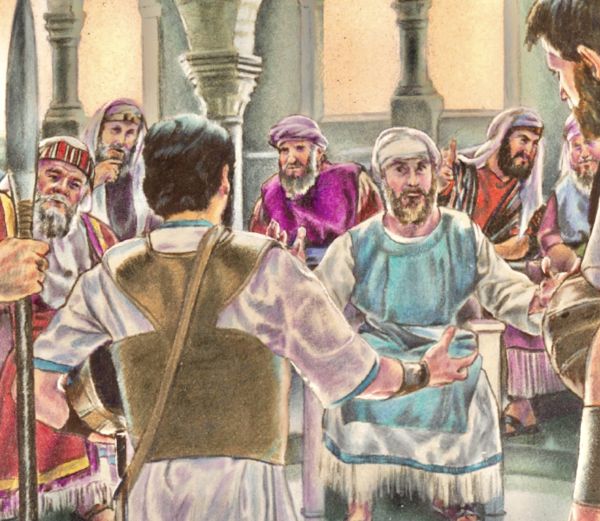In today's Gospel passage, Jesus, who proposed himself as the Fountain of True Water, is answered by people of the people, who assert:
«He is indeed the prophet!» (Jn 7:40) - and Pharisees who counter:
«from Galilee no prophet rises!» (Jn 7:52).
Two opposing theses, but verified and unhinged by facts at the moment when, on the cross, the centurion will say that the one who was crucified was indeed the Son of God.
Real events lay bare the truth.
This is what happened in the life of Francis of Assisi: events demonstrated the authentic and eloquent character of his naked living.
Consulting the Franciscan Sources, we encounter passages that truly underline his charisma as a prophet.
"Since the herald of Christ was famous for these and many other prodigies, people paid attention to his words as if he were speaking as an Angel of the Lord.
For the prerogative of the lofty virtues, the spirit of prophecy, the thaumaturgical power, the mission to preach coming from heaven, the obedience of creatures deprived of reason, the sudden conversions of hearts brought about by hearing his word, the knowledge infused by the Holy Spirit and superior to human doctrine, the authorisation to preach granted by the Supreme Pontiff by divine revelation, as well as the Rule, which defines the form of preaching, confirmed by the Vicar of Christ himself and, finally, the signs of the Supreme King impressed like a seal on his body, are like ten testimonies for the whole world and confirm without a shadow of a doubt that Francis, the herald of Christ, is worthy of all veneration for the mission received, authentic in the doctrine taught, admirable for holiness and that, therefore, he preached the Gospel of Christ as a true envoy of God" (FF 1221).
If for his total change of life there were those who called him a madman, the events of which he became the bearer confirm his prophetic charisma.
In Clare's Testament, compiled along the lines of that of the Poverello, we find something that corroborates what has been said above.
"While in fact, the Saint himself, who had as yet neither brothers nor companions, almost immediately after his conversion, was intent on repairing the church of San Damiano, where, receiving that visit from the Lord in which he was inebriated with celestial consolation, he felt the decisive urge to abandon the world altogether, in a transport of great joy and enlightened by the Holy Spirit, he prophesied concerning us what the Lord subsequently fulfilled" (FF 2826).
And again:
"Having climbed over the wall of the said church, so he cried out, in an open voice and in French, addressed to some poor people who were standing nearby:
"Come and help me in this work of the monastery of San Damiano, for soon women will come to inhabit it, and by the fame and holiness of their lives glory will be rendered to our heavenly Father throughout his holy Church" (FF 2827).
Could a prophet arise from Assisi?
Yes, a great prophet, if even today everyone recognises him and follows him with amazement for his extraordinary humility blossomed in multiple evangelical gifts, to the praise of God.
«Those in the crowd said, 'This is indeed the prophet!'» (Jn 7:40) [...].
«Study, and see that out of Galilee no prophet rises!» (Jn 7:52)
Saturday 4th wk. in Lent (Jn 7:40-53)












